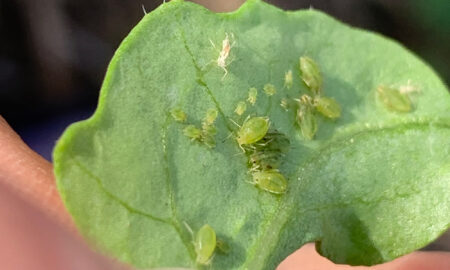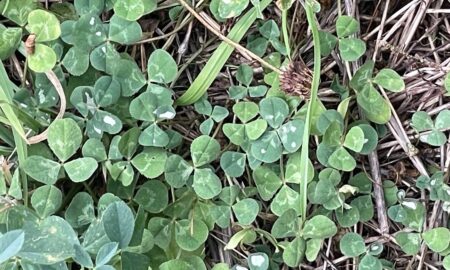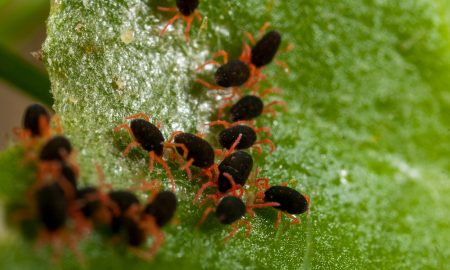Sightings of green peach aphids in canola are, for some, a nasty reminder of last year’s beet western yellows virus epidemic. Spraying now is unlikely to be warranted.
Last year was a scary year for many farmers when beet western yellows virus (BWYV), vectored predominantly by green peach aphids, was severe in canola crops throughout many parts of South Australia, western Victoria and some parts of New South Wales.
This year, however, has been much quieter with no major outbreaks of which we know.
Whilst growers are right to be wary of virus outbreaks, there are good reasons to pause before spraying.
Where have they been reported?
Several reports have come to us recently by growers and agronomists who have seen green peach aphids (Myzus persicae – GPA) in Victoria’s Northern Country and Mallee districts.
In most cases these GPA have been in low numbers, and no sprays were applied. In other cases, the grower sprayed to prevent potential virus infection.
In only one case were there high populations of GPA, which persisted through several insecticide sprays and may have infected the canola crop with BWYV.
About green peach aphids
For comprehensive information on green peach aphids, including their occurrence, lifecycle, behaviour, damage symptoms and management strategies, go to green peach aphid within the new PestNote series.
Our advice
Because each incursion of GPA is different, there is no hard and fast rule about whether or not to spray.
In general, GPA are less likely to inflict direct feeding damage to crops than other aphids, and they are rarely of economic importance once canola reaches the 8-leaf stage.
While there are no thresholds established for GPA, there are several factors to be considered, especially at this time of year, before spraying for GPA as a precaution against potential virus infection.
Firstly, many populations of green peach aphids have been found to have resistance to a number of chemical groups, namely organophosphates, synthetic pyrethroids and carbamates. Research led by cesar indicates GPA may have also begun developing resistance to neonicotinoids.
Spraying insecticides for GPA increases the risk of insecticide resistance to aphids and non-target pests; hence, insecticides should only be applied when necessary.
Secondly, the coldest period of year is upon us, and both the population growth of GPA and the likelihood of immigrant flights by winged adults has decreased significantly. With the reduced risk of immigrant flights, the risk of virus infection (if it isn’t already within the crop) occurring from now on is much lower.
A decision to spray upon sighting GPA will vary regionally. For example, for those living in areas that had widespread virus last year, there may be a higher risk of aphids transmitting viruses into their crops this year.
In summary, aphid flights will now have decreased in frequency and distance. Unless your crop is within a region hit by BWYV last year, and unless you have seen symptoms of BWYV in your crop this year, controlling low populations of GPA using insecticide is probably not warranted.
Of course, if a spray is deemed necessary, remember to rotate chemical groups using the remaining effective chemistry available.
Acknowledgements
Sources of field reports of green peach aphids
Matthew Gready – Agronomist, Lipp’s Bulk Super (Victoria’s Northern Country)
Andrew McMahen – Agronomist, Landmark (Victorian Mallee)
Craig Muir – Agronomist, AGRIvision Consultants (Victoria’s Northern Country)
Duncan Thomas – Agronomist, Landmark (Victoria’s Northern Country)
Cover image: Photo by Andrew Weeks, Cesar Australia





